NanoBubbles - Potential Decontamination Methods with Ozone and UV Light
Potential Decontamination Methods &
Commercial Applications for Nanobubbles
(Originally uploaded to Facebook March 18, 2020, but my page was unjustly deleted as well as both of my YouTube channels)
Possible Decontamination
Oxygen nanobubbles, Ozone nanobubbles, and also Chlorine Dioxide nanobubbles as a dissolved gas in water can be made into a fog or mist. The fog or mist can disinfect a room and surfaces within less time and with more efficiency than current methods.
(Images from this detailed article I compiled of nanobubble research) https://steemit.com/steemit/@verbz/fantastic-properties-of-nano-bubbles
The nanobubbles can remain as a dissolved gas in very small droplets because they are 1000 times smaller than a red blood cell.
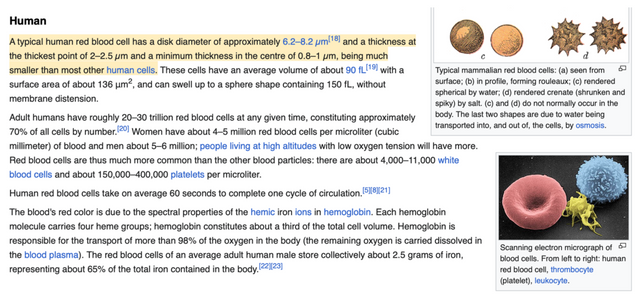
The nanobubbles are much smaller than the droplet of water vapor, mist or fog. So there could be a high % of dissolved gas per microdroplet. (there’s also no danger to breathing any escaped gases or radicals when nanobubbles are dissolved in water.)
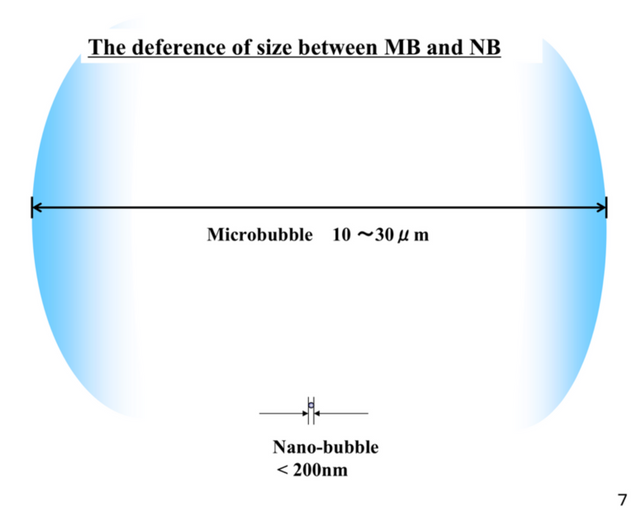
So, the bubbles of disinfecting gas will remain in a mist or a fog. They will dissipate and only kill a coronavirus/pathogens and harmful microbes/viruses on contact.
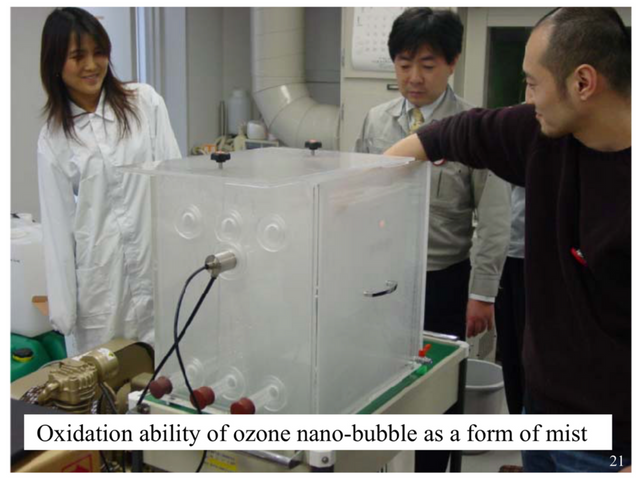
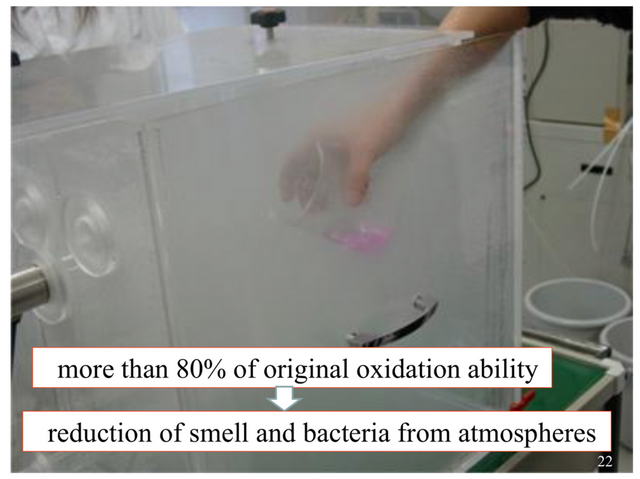
Sunlight has minimal UV light in a broad spectrum and can take 2 to 4 minutes to kill microbes on surfaces with a given amount of lumens. But if you have a LASER beam or LED at 235 nm specifically… That is a UV wavelength that can kill viruses and microbes much faster. Could even combine the fog/mist with UV light.
Like shining a laser beam at a glass of water or IV bag of saline. Turn the glass/bag into a mock-lightbulb or lasing media… Re-emitting the UV radiation. Or like turning on your brights in the fog.
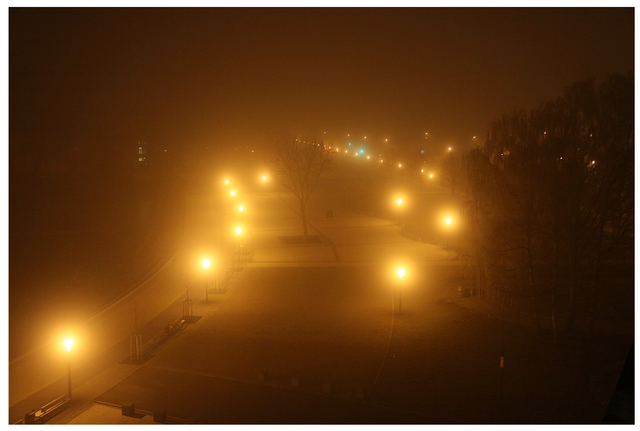
It illuminates the fog and at the particular wavelength being put out. So, have a safe disinfecting fog with ozone nanobubbles that’s stimulated with a UV laser or LED light to make the whole cloud glow.
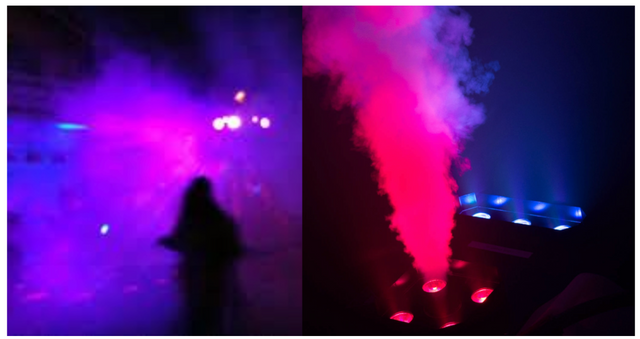
Which will decrease the time needed to clean a given volume or surface area.
Some hospital UV units use long fluorescent-like tubes that put out a range of UV light. And it takes up to 10 minutes to disinfect a room. Maybe longer.
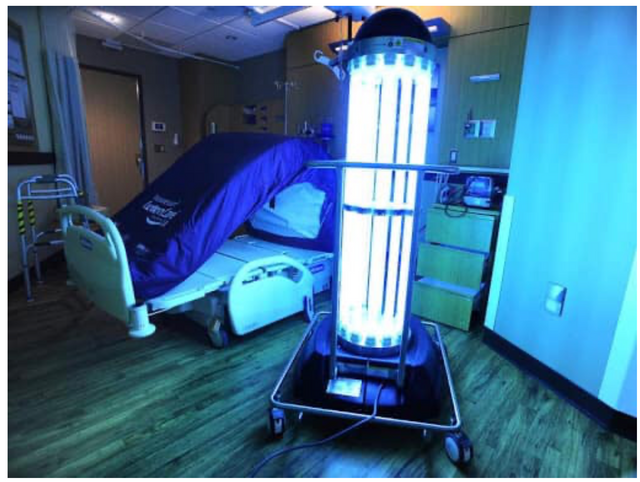
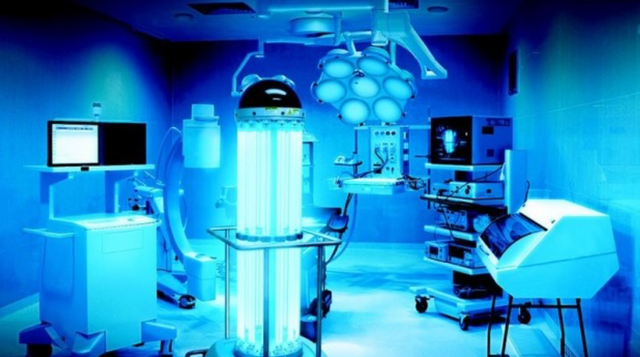
We are not looking to decrease the effectiveness of the Ultraviolet Radiation by blocking it with a vapor cloud. (To diminish the power of the UV)
But rather we are looking to increase the effectiveness of the vapor cloud by irradiating it with UV. Regardless of power level. Any added UV light to a disinfecting fog or mist would be better than no UV light when ozone is present.
But we want 235 nanometers specifically.
http://www.westernquartz.com/wquartz/Technical.html
Blacklights and “UV” LED flashlights won’t cut it. Good start though.
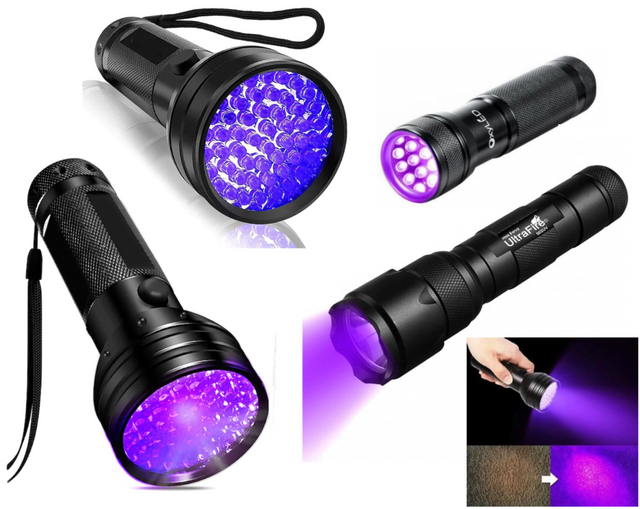
Other people have been asking similar questions regarding where to find 235 nm wavelength specifically. Seems to be Very difficult. https://www.researchgate.net/post/How_can_I_get_180nm_and_235nm_UV_light
I remember there was a company years ago that offered 235nm diodes. But they were “military grade” and cost something like $300 per diode. But that same company doesn’t offer the UV range anymore. Can’t seem to find 235nm anywhere.
http://www.roithner-laser.com/deepuv_cross.html
Here is the old link for the 235nm diodes. But it isn’t active anymore.
And no archive on WaybackMachine.
http://www.roithner-laser.com/deepuv/smd_235.html
The lowest that company offers now is 255nm. And it’s only 0.4mW.
http://www.roithner-laser.com/datasheets/led_deepuv/uvtop250-fw-to39.pdf
And I’ve been trying to find if variable lasers are available (or if they even exist).
And how to possibly isolate that wavelength. It’s quite technical.
https://en.wikipedia.org/wiki/Tunable_laser
Shaking the medium to vary the frequency:
(I've had other ideas about rotating different lasing media.)
https://hackaday.com/tag/variable-frequency-laser/
But nothing available for 235nm:
https://www.spectra-physics.com/products/tunable-laser
I found one place that offers the 235 allegedly.
Sent an inquiry but have not heard any reply:
https://tinyurl.com/y75a3m77
Kevin Keener – Cold Plasma Kills Viruses and Bacteria
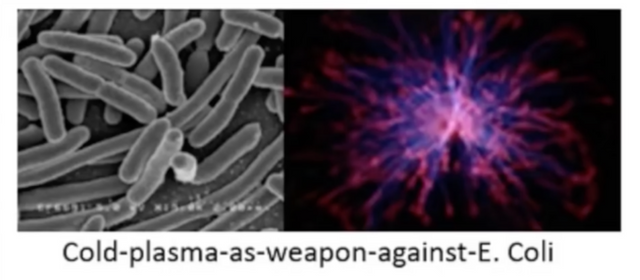
https://rumble.com/vbxjrz-cold-plasma-kills-viruses-and-bacteria-kevin-keener.html
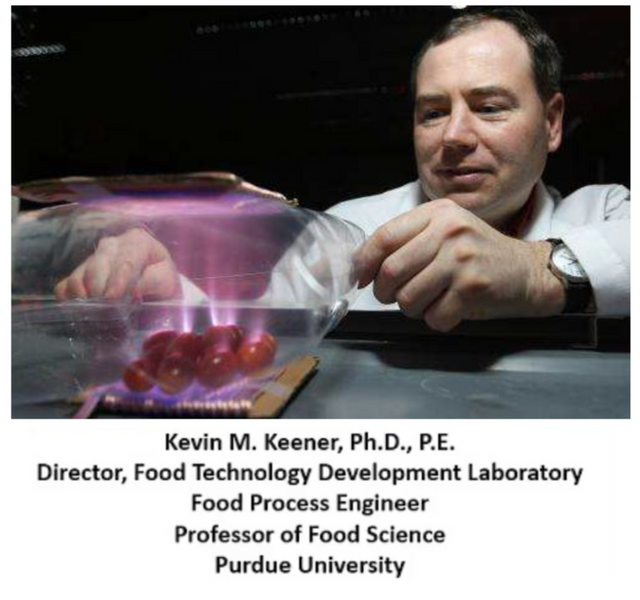
In Package Plasma kills bacteria:
https://www.purdue.edu/newsroom/releases/2013/Q2/in-package-plasma-process-quickly,-effectively-kills-bacteria.html
Ozone Nanobubbles kill viruses and bacteria in seafood within 24 hours.
The water looks pink because of the ozone due to a different refractive index.

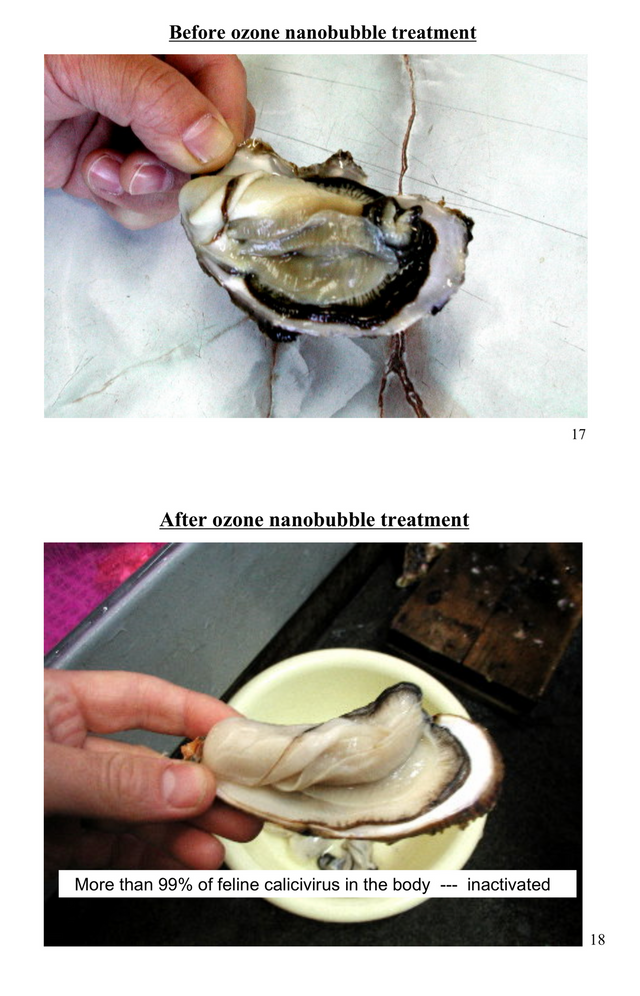

Kevin Keener – Plasma Cleaning Process
https://rumble.com/vbxjql-kevin-keener-plasma-cleaning-process.html
Cleaning with Coronal Discharge by Applied Science
The ozone produced from high voltage/cold plasma also comes with harmful radicals.
(That’s partially why theSharper Image Company stopped selling those air ionizers years ago.)
Because, even though it cleared the air of smoke and impurities... it filled the air with harmful ozone gas instead. So, you were supposed to vacate the room while the ionizer was in operation and then wait for the ozone to dissipate and clear before returning.
Inactivation of Surface Viruses by Gaseous Ozone:
https://www.ncbi.nlm.nih.gov/pubmed/18561570
You don’t worry about the CO₂ gas in your soda do you? Probably not.
But those bubbles are huge compared to nanobubbles.
Nanobubbles have neutral buoyancy, so they don’t rise to the surface and pop.
You don’t have to worry about toxic gases you might breathe in.
Ultraviolet Blood Therapy.
(Like a dialysis process but introducing UV Light to the blood as it flows through the unit to disinfect)
https://en.wikipedia.org/wiki/Blood_irradiation_therapy
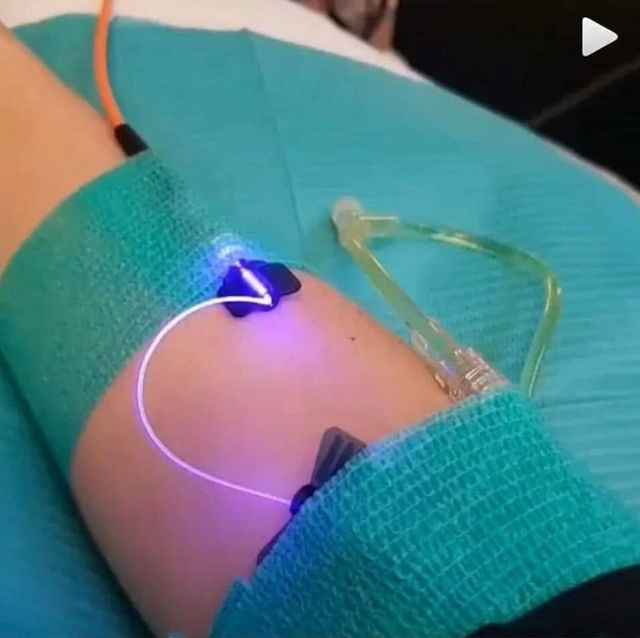
So, the effectiveness of ozone on bacteria and viruses is known and can be demonstrated; as well as, the demonstration of effectiveness using Ultraviolet radiation. https://en.m.wikipedia.org/wiki/Ultraviolet_germicidal_irradiation
Nanobubbles have even been injected directly into the bloodstream in a controlled environment.
For cancer treatments and other exotic methods to treat disease.
There are many studies.

So, combining these beneficial methods might be even more advantageous.
Especially if using ozone nanobubbles stimulated with the UV as a dissolved gas in water.
Which is then rendered into a fog or mist.
Which will still retain at least 80% of the nanobubble’s effectiveness even as a cloud. https://www.threebond.co.jp/en/technical/technicalnews/pdf/tech17.pdf
This can decrease the size of the existing cleaning units... Decrease the time needed to disinfect... Increase efficiency... Which ultimately translates to a decrease in Cost.
(More benefit for less money in the long run.)
.
.
.
Commercial Applications for Nanobubbles
Agriculture
Makes plants produce more yield. Plants are able to absorb and uptake more water and nutrients.
The plants are potentially more bug resistant, more drought resistant, more heat and cold resistant.
Healthier plants, more vibrant with more minerals. Both roots and foliage absorbs more as well.
Plants are larger and/or have more yield.
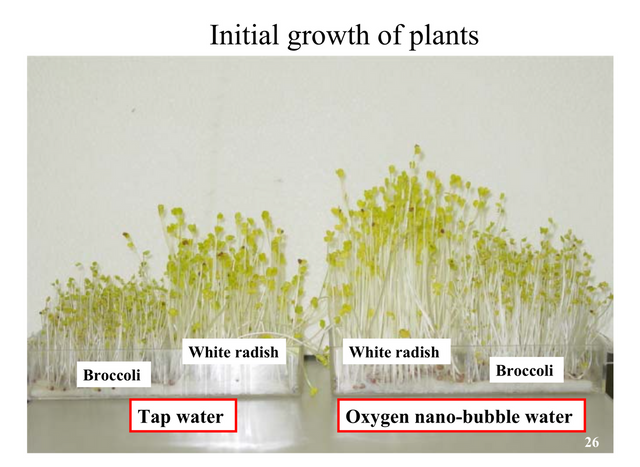

Florists
Fresh plants and cut flowers last longer and have more vibrancy.
Aquariums
Oxygen nanobubbles makes fish healthier and the water cleaner. Makes the water tanks more algae resistant. A tank of stagnant water with oxygen nanobubbles can be cleaner and healthier for fish than a tank of moving water and aerating with large bubbles of normal air pulled from an air pump.
Promotes so much dissolved oxygen, freshwater fish & saltwater fish can live in the same tank!
https://rumble.com/vbv8af-nanobubble-water-from-japan.html
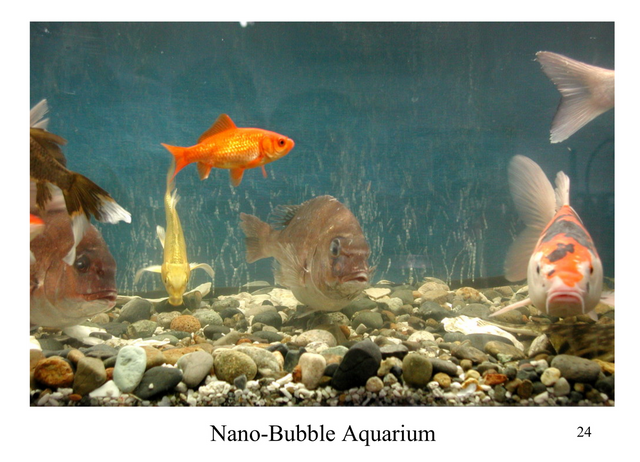
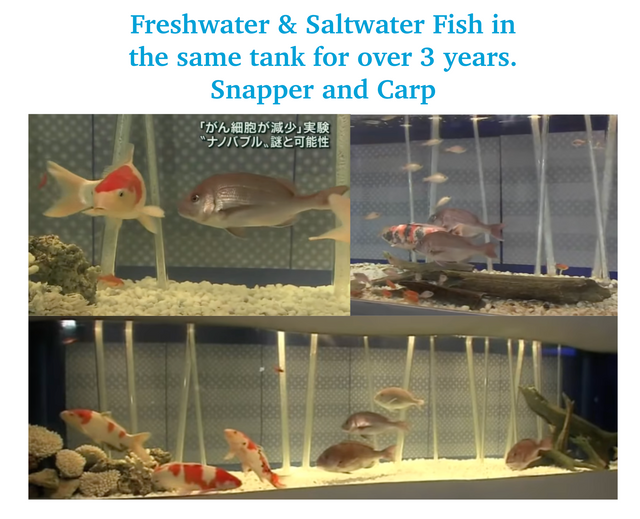
Laundromats
Breaks up stains more effectively. Can use less water to clean and penetrate the materials.
Ozone nanobubbles can supplement the need for detergents or reduce use of detergents by 50%.
Gets rid of odors.
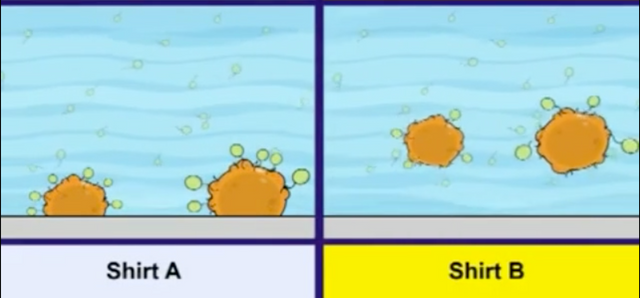
Concrete
Can potentially help concrete set with more structural integrity.
(And in a slightly faster time?)
Dialysis/ UV transfusions
Can potentially aid kidney dialysis and lower time needed to process blood because of so much available oxygen.
Birthing Pools
Mothers can have the cleanest, most energized and oxygenated water possible for newborns.

Sewage Treatment
Can clean wastewater faster and more effectively. Reduces costs.
https://rumble.com/vbv7sx-oxygen-nanobubbles-clean-lake-and-fish-1990-japan.html
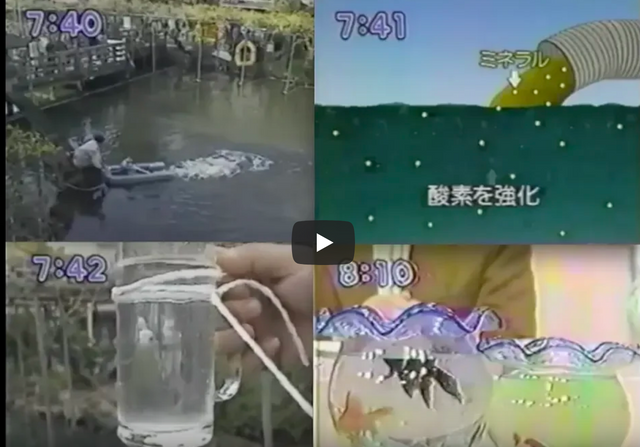
Get rid of Algae Blooms/ Red Tides and Improve Coral Reefs
Can clean the shoreline and bodies of water within hours to a couple days by injecting oxygen. The nanobubbles latch onto the impurities and they rise to the surface to form a nasty scum.
Then you skim the surface and suck the foam and waste out to leave the body of water pristine and sea life flourishing.
https://rumble.com/v2b5m4i-nanobubbles-clean-florida-lake-infested-with-algae.html

https://rumble.com/v2b5o0u-mexican-scientists-use-nanobubbles-to-clean-a-body-of-water.html
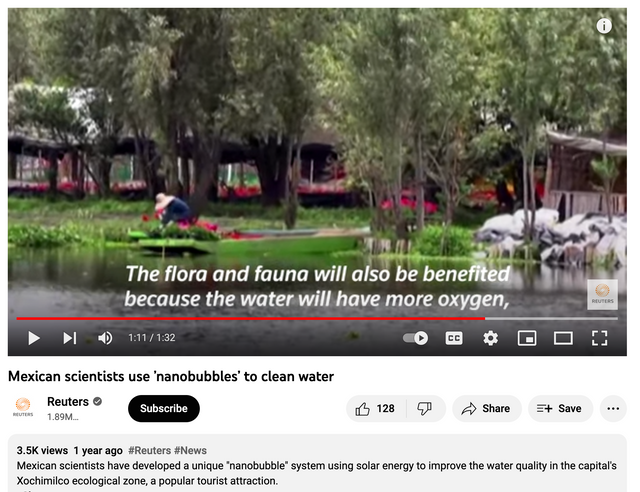
https://rumble.com/v2b5p0e-nanobubbles-help-clean-the-biosphere-greenwater-solutions.html
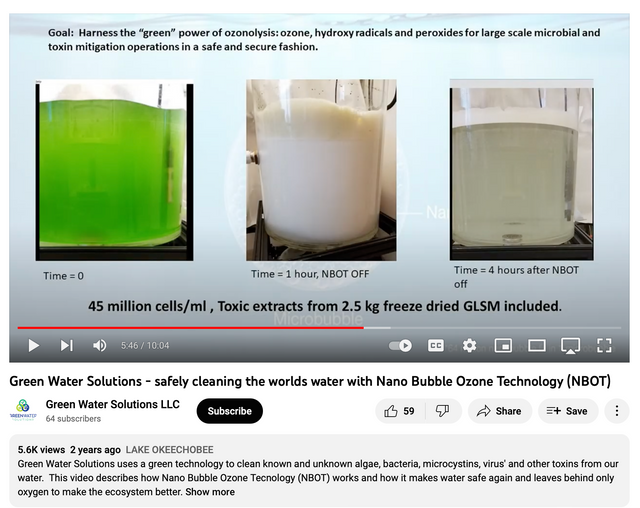
https://rumble.com/vbv8l9-oxygen-nanobubbles-for-red-tide-algae-blooms.html
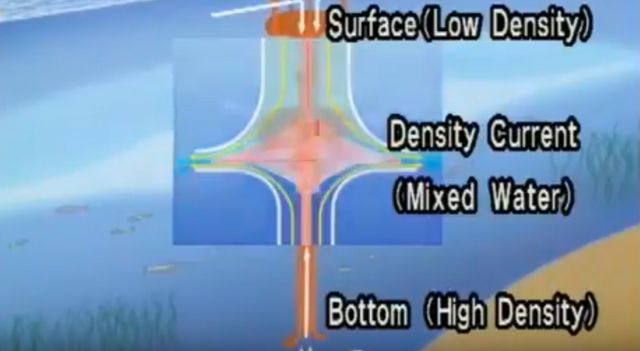
Seafood
Can clean bacteria/viruses out of oysters and shrimp and seafood within 24 hours by soaking them in ozone nanobubble water. Can even ship some fish and oysters in blocks of ice made of oxygen nanobubble water… and they're still alive when the ice is thawed. Good for transport.
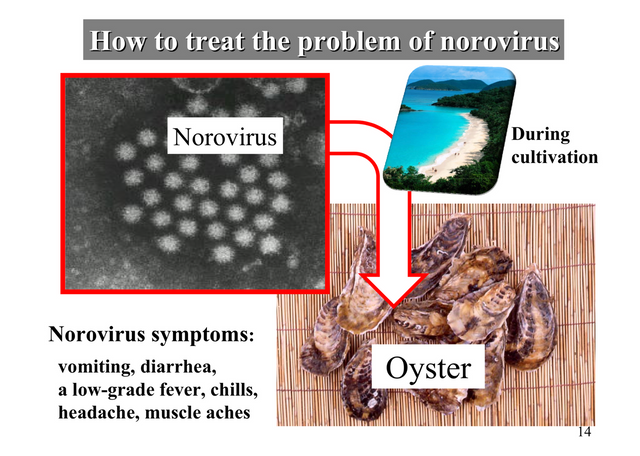

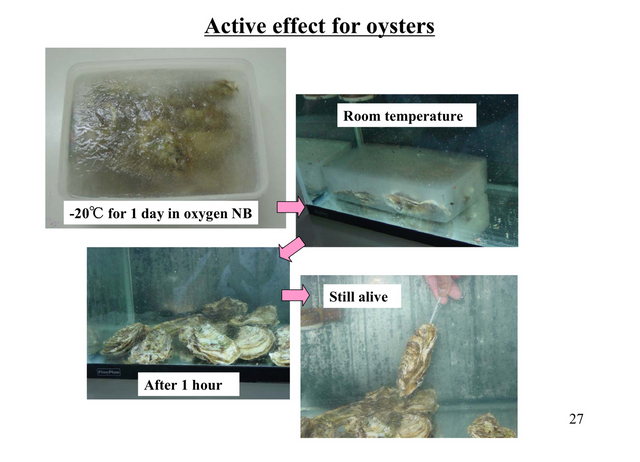
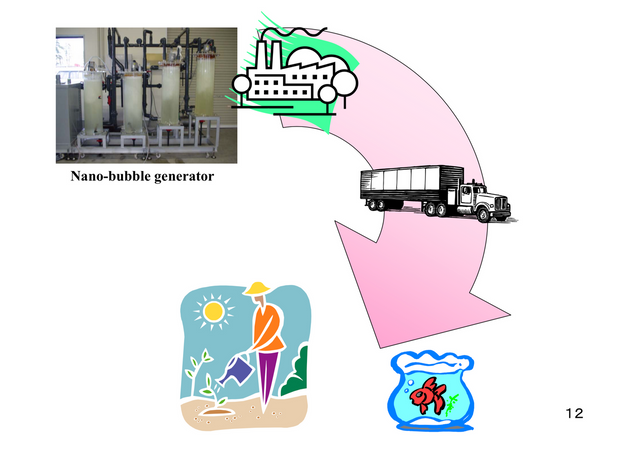
More MPG from your Gas Tank
Can improve gas mileage by injecting volatile gases as nanobubbles into oil or gas/ petrol.
Even enough dissolve gases in water can be mixed with fuel to double the life of a tank of gas.
(Like Sosei Fuel Water.)
Also... Illuminating different nanobubbles with specific wavelengths associated with those gases emissions spectrums can potentially increase their effectiveness.
And Illuminating water with LASER light associated with hydrogen's emission lines can potentially increase electrolysis processes and hydrogen generation as well.
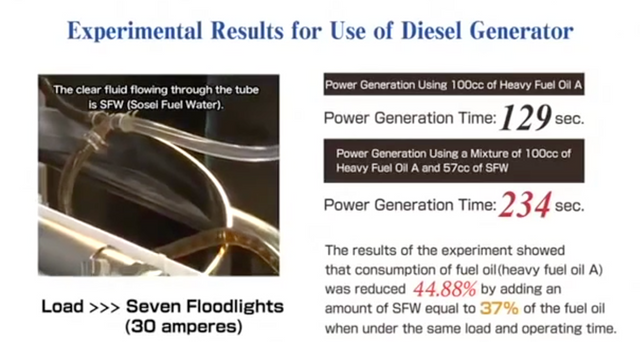
Sosei Fuel Water (SFW)
https://rumble.com/vbuq6h-sosei-fuel-water-sfw-oxygen-hydrogen-nanobubbles.html
Cancer Research & Medical Applications
Nanobubbles seem to destroy mutated cells in tumors and cancers according to some clinical trials. There are case studies of alleged restoration of kidney and liver function, aiding with diabetes in mice and other potential medical benefits.
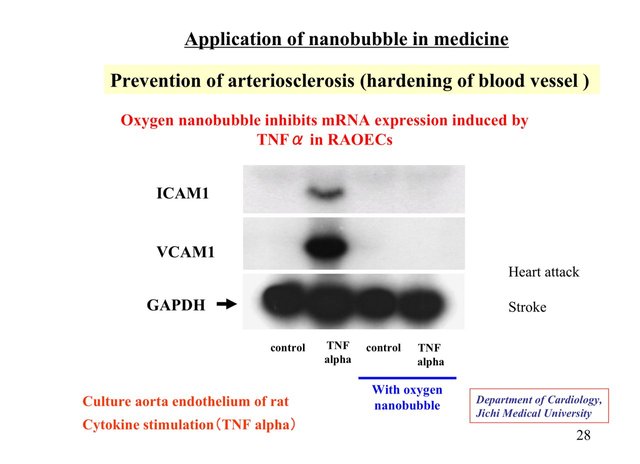
Surfactant Reduction
Nanobubbles can emulsify oil and water and reduce or replace the need for chemical surfactants.
Hotel Kitchens
Can clean food and grit and stains off plates and silverware more effectively
Carwashes
Can clean dirt and grime off cars more effectively.
Nanobubble Powerdrinks
Bring Brawndo to life from the movie Idiocracy. The energy from nanobubbles binds with electrolytes (salts) in the flavored water and will have more benefit than other drinks without nanobubbles.
(Might even make for sodas that don’t go flat when you open them. Because the CO₂ nanobubbles wouldn’t rise to the surface.)
Fizzy Fruit
Carbonated fruits and candies using nanobubble water with CO₂.
Jelly Bulbs/ Jelly Paint
Mix neon nanobubbles in a ballistic type gel and bring the block of gel near a tesla coil. The gel will glow like a fluorescent bulb. Could be turned into paints that glow in the presence of an oscillating electric field.
Sterilization/ Sanitizing
Can reduce or replace the need for chemicals to clean.
Inject ozone nanobubbles and/or chlorine dioxide into water. Reduce the water to a fog or mist.
The nanobubbles remain since they are 1000 times smaller than a red blood cell. Illuminate the cloud of fog with UV light. (specifically 235nm range).
Can eliminate bacteria and viruses faster and more effectively.
Humidifiers
Breathing in Oxygen nanobubbles in a mist might also help with asthma and congestion, sinuses, respiratory infections, anemia, etc.
Health and Immunity
Drinking hydrogen rich and oxygen rich dissolved gasses in water can be beneficial for the body, easier digestion and improve organ function.
Fermentation
Can potentially reduce the time needed for fermentation and growth of yeast while increasing potency for beers and alcohol. Or... increase the potency and improve fermentation process in the same amount of time as normal.
(This means more and/or stronger beer broz! ... and imagine a beer that doesn't go flat!)